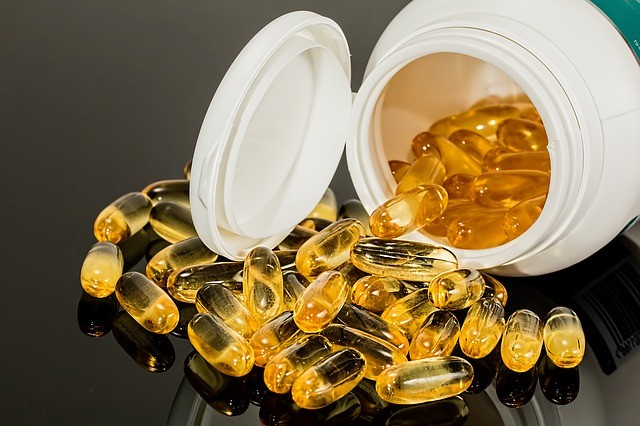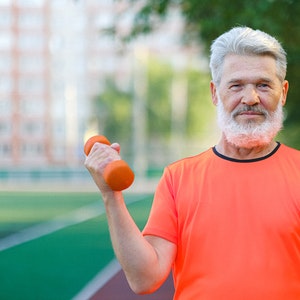Did you know that exercise can have a powerful impact on your hormones? It’s true – regular physical activity, along with a proper diet, including taking creatine supplements, has been shown to positively affect several key hormones in the body. Make sure to check out the top creatine supplements here, and you’ll learn just how these supplements can improve your health.
So, whether you’re looking for an extra dose of motivation or simply want to feel better overall, keep reading to learn more about the hormones positively affected by exercise. From dopamine and serotonin to testosterone and estrogen, we’ll explore how these chemical messengers can be elevated through the power of movement.
Dopamine

Let’s talk about dopamine, often referred to as the “feel-good” hormone. When engaging in physical exercise, your brain triggers dopamine release, creating a sense of pleasure and reward. This powerful neurotransmitter plays a vital role in motivation, focus, and even addiction.
By incorporating regular workouts into your routine, you can give your dopamine levels a natural boost. Whether going for a run or hitting the gym for some weightlifting sessions, any exercise that gets your heart pumping can increase dopamine production. Luckily, even moderate-intensity activities like brisk walking or dancing can do wonders for your dopamine levels.
Serotonin
Often referred to as the “feel-good” hormone, this hormone is significant in our overall well-being. Serotonin’s main job is to regulate mood, appetite, and sleep patterns. When our serotonin levels are low, we may experience feelings of sadness or depression. But engaging in regular exercise has been shown to improve serotonin levels in the brain.
Physical activity stimulates the release of this hormone, leading to an increase in feelings of happiness and contentment. Whether going for a jog outdoors or taking a dance class at your local gym, any form of exercise can boost your serotonin levels. In addition to its impact on mood, serotonin also contributes to healthy digestion and promotes better sleep quality.
Testosterone
Testosterone is often associated with masculinity and strength, but its influence extends far beyond physical appearance. It plays a crucial role in both men’s and women’s overall health and well-being. Regular exercise has been shown to have a positive impact on testosterone levels. When you engage in activities like weightlifting or high-intensity interval training, your body releases more of this hormone.
This can further increase muscle mass, improve bone density, and enhance athletic performance. But the benefits of testosterone go beyond just the physical aspects. It also affects mood, energy levels, and cognitive function. Higher testosterone levels are scientifically associated with improved focus, motivation, and mental sharpness.
Estrogen
 Okay, you may know this hormone as the one responsible for regulating menstrual cycles, maintaining bone health, and supporting overall well-being. That’s true. But with moderate, regular exercise, estrogen levels can be positively affected. Regular physical activity has been shown to help regulate estrogen levels in women. Exercise promotes blood circulation and oxygen flow throughout the body, which can aid in the production of estrogen. Additionally, engaging in weight-bearing exercises such as strength training or jogging can help maintain bone density and reduce the risk of osteoporosis associated with declining estrogen levels. So ladies, embrace the power of physical activity.
Okay, you may know this hormone as the one responsible for regulating menstrual cycles, maintaining bone health, and supporting overall well-being. That’s true. But with moderate, regular exercise, estrogen levels can be positively affected. Regular physical activity has been shown to help regulate estrogen levels in women. Exercise promotes blood circulation and oxygen flow throughout the body, which can aid in the production of estrogen. Additionally, engaging in weight-bearing exercises such as strength training or jogging can help maintain bone density and reduce the risk of osteoporosis associated with declining estrogen levels. So ladies, embrace the power of physical activity.
Incorporating regular exercise into your lifestyle has far-reaching benefits beyond just physical fitness. It positively impacts various hormones like dopamine for better mood regulation; serotonin for reduced stress; testosterone for improved strength; and estrogen for overall hormonal balance. So lace up those sneakers or roll out that yoga mat – your body will thank you.…



 Your declining testosterone levels can be one of the primary reasons you are losing your muscle mass. This primary hormone for male sexual characteristics also play an important role in the development of muscles and bones. When its level declines, and so with your muscle mass.
Your declining testosterone levels can be one of the primary reasons you are losing your muscle mass. This primary hormone for male sexual characteristics also play an important role in the development of muscles and bones. When its level declines, and so with your muscle mass. When it comes to the food that we eat, protein is the most important part of our diet that has something to with our muscles. It is called the building blocks of the body. When we consume proteins, they are broken down to amino acids which are essential for body functions such as growth and development.
When it comes to the food that we eat, protein is the most important part of our diet that has something to with our muscles. It is called the building blocks of the body. When we consume proteins, they are broken down to amino acids which are essential for body functions such as growth and development. Physical activities will delay loss of muscles. In contrast, living a lethargic life will enhance loss of muscle mass and strength. As much as possible, move around to maintain your mobility and do activities that promotes your muscle strength. You can consult your doctor about getting into a muscle strengthening program.
Physical activities will delay loss of muscles. In contrast, living a lethargic life will enhance loss of muscle mass and strength. As much as possible, move around to maintain your mobility and do activities that promotes your muscle strength. You can consult your doctor about getting into a muscle strengthening program.